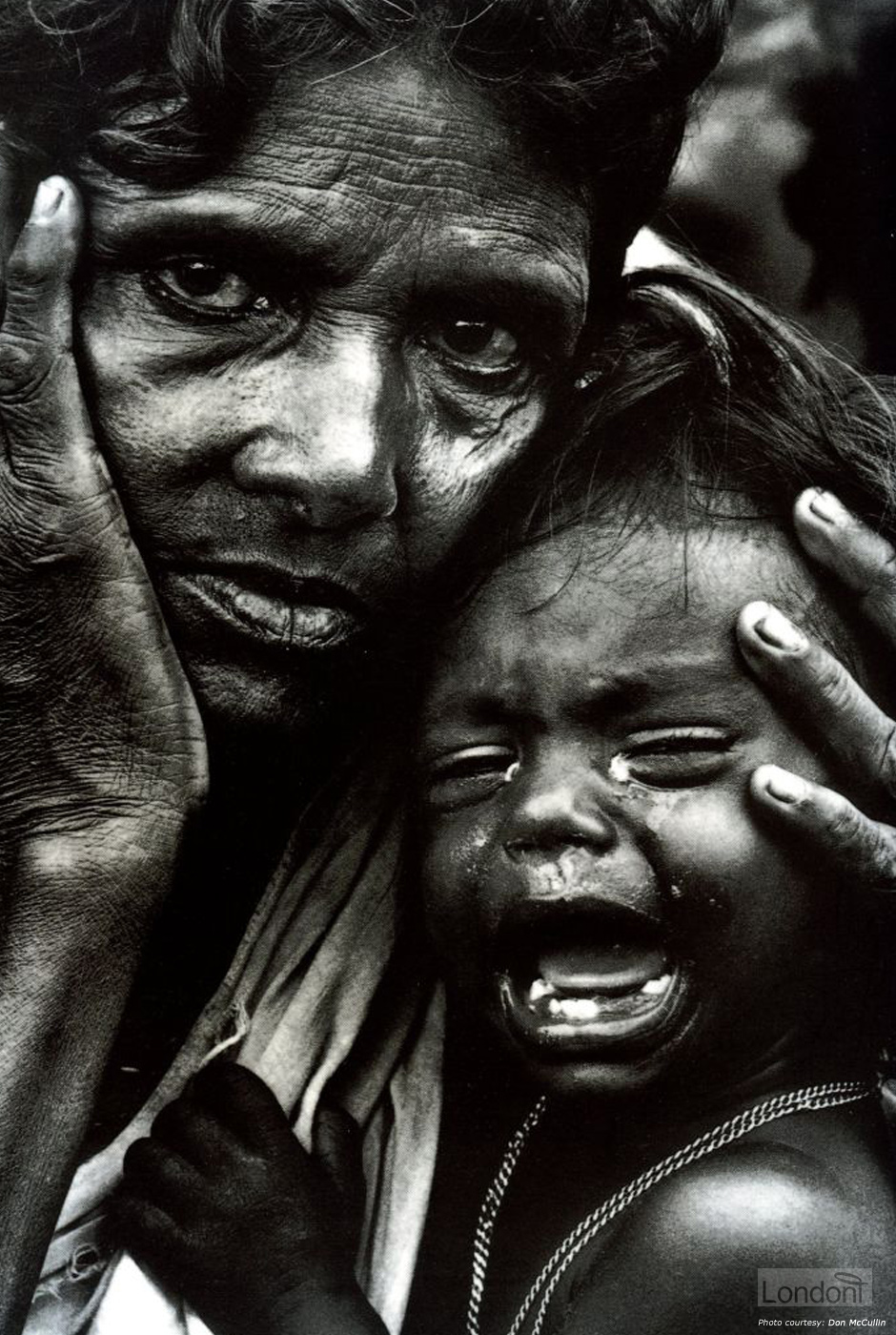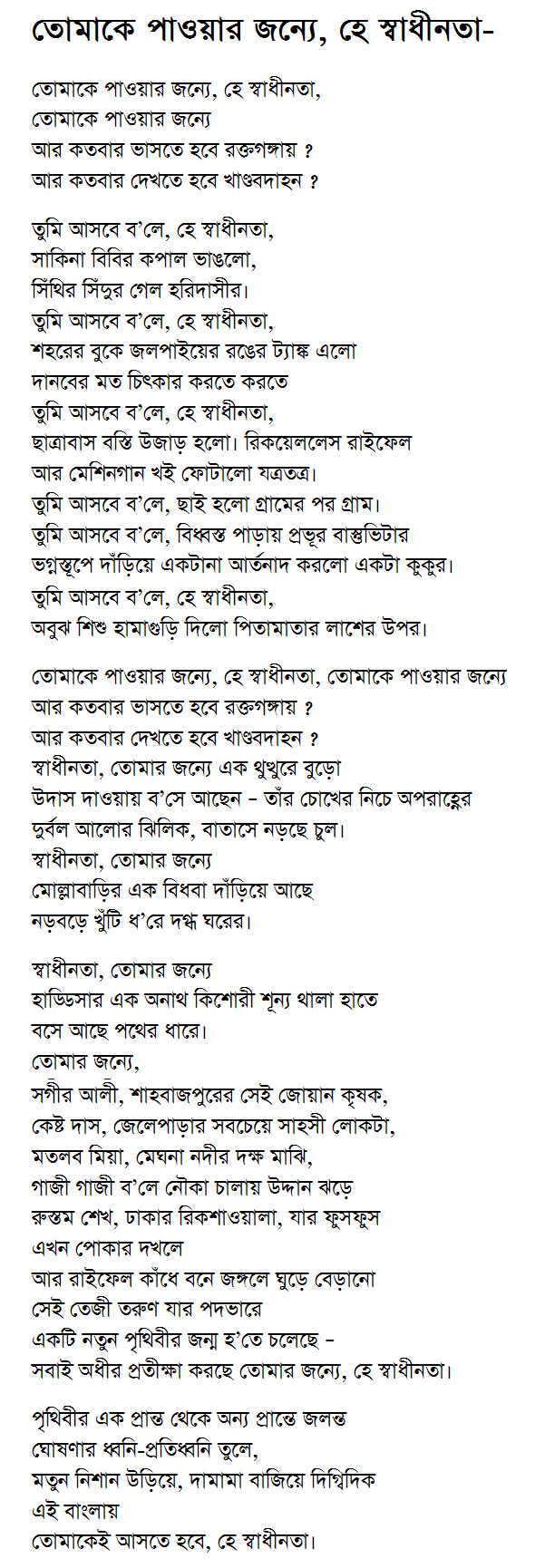
Silent screams
Last updated: 5 October 2017 From the section 1971 Muktijuddho
One of the main conditions of India's support was that Bangladesh organise the quick return of the refugees and restore their lands and belongings to them. The Bangladesh government was also intent on seeking war reparations (compensation) from Pakistan if possible. And so at week's end the streams of refugees who walked so long and so far to get to India began making the long journey back home to pick up the threads of their lives.
For some, there were happy reunions with relatives and friends, for others tears and the bitter sense of loss for those who will never return. But there were new homes to be raised, new shrines to be built, and a new nation to be formed.
The land was there too, lush and green.
Physical and mental scars for life
Bangladesh was born of a dream twice deferred. Twenty-four years prior to 1971, Bengalis voted to join the new nation of Pakistan, which had been carved out of British India as a Muslim homeland. Before long, religious unity disintegrated into racial and regional bigotry as the autocratic Muslims of West Pakistan systematically exploited their Bengali brethren in the East.
From a distant minaret, from a mosque unknown, from the far-reaching throat of the muezzin floats in the faint call to the faithful for the morning Fajr prayer, "Allah-u Akbar, Ash-hadu an la ilaha illallah...". Yes, people are still alive. Yes...
Dawn pierced through the misty shadows. The blood-red sphere of the sun emerged in the sky of an independent Bangladesh...Finally dawn emerges, the first dawn in independent Bangladesh. How many times in one lifetime do you seen a sunrise like this! It is washed in the blood of one million martyrs. That is perhaps why it appears redder than usual.
The time has come for us to return. The pain and suffering of the last 9 months have come to an end. Soon we will go home. Families, friends, dear ones - how are they? How have they fared? Who is alive? Who has died? Is it going to be a happy reunion. or a sad one? Who knows...
But no, we are not dead. Some are but, like many others, I am alive and victorious in this war of independence! If Golam Gaus were alive today, or Akkas, or Motiar [fallen comrades], what harm would it be to anyone? If there is a soul, then surely their souls must be happy today, satisfied. Until this day their souls have craved revenge, but today they are fulfilled.
Mahbub Alam, writer
The memories are still fresh of those who died of cholera on the muddy paths to India, or suffered unspeakable atrocities at the hands of the Pakistani military. And there are children, blind and brain-damaged, who will carry the scars of malnutrition for the rest of their lives.
In November 1971, a month before victory, there was a major outbreak of smallpox at the Salt Lake refugee camp near Kolkata where thousands of Bengali refugees were temporarily housed. These refugees were to have been vaccinated on arrival, but with thousands more crossing over into India every day, very few received the vaccination.
In the crowded and filthy conditions of the camps, smallpox spread very rapidly. Moreover, the initial outbreak was misdiagnosed so that no action was taken to contain it until the end of January 1972. By then, several million Bangladeshis had sought refuge in that area.
Upon their subsequent return to Bangladesh the infection spread initially from three districts in the southwest - Barisal, Faridpur, and Khulna - to 27 of the country's 57 subdivisions. The number of smallpox cases reported by Bangladesh during 1972 was 10,754 - though it is believed that the actual figures were ten times higher.
The liberation movement of Bangladesh was not only limited to nine months of freedom fight, but it was shaped through a process of long termed evolution.
It was a revolution to save culture, it was a struggle to speak in ones own language, it was a protest to have ones own right and finally it was a war to save humanity. In recent time, no people have paid so much in such a short time in terms of life and property. Almost 3 million have lost their lives, 10 million were routed out from their homes and rest 60 millions were subjected to untold miseries. The freedom fighters that were the successors of Dudu Miah and Titumir had to fight an unequal battle against the highly armed and equipped Pakistan army only with their bold courage and never diminishing determination. They dared to accept death as they cared for independence.
Among those sons of the soil, a few appeared in their death challenging bouts with unparalleled vigour and valour. Their heroic sacrifice erected an emblem of inspiration and profound determination to uphold the holy sovereignty and to keep the blood bathed sun of independence ever shining.
Thousands of people have sacrificed their invaluable lives, shaded own blood for the independence of Bangladesh.
Those who sacrificed their lives by fighting so gallantly for the cause of the nation could not see the first sun rise in the liberated Bangladesh. Many of the freedom fighters had died being directly involved in the fighting, perhaps, in thousands whose correct statistics have never been made.
Fact is that they all sacrificed their present for our better future and for the future of our generations to come.
Major General (Rtd.) Syed Muhammad Ibrahim, Bir Protik
It is a dream come true, but you must also remember that we went through a nightmare.
Bangladeshi diplomat in first diplomatic mission in New Delhi
'Tumake Pawar Jonno Hai Shadinota' by Shamshur Rahman

